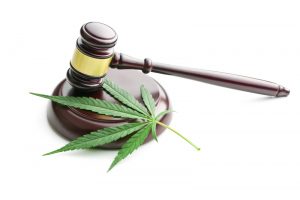 By: Susan St. John
By: Susan St. John
As you may have heard, the State Hemp Plan, SB 1020, has passed the Florida House and Senate and is waiting for Governor DeSantis’ action (approval or veto) or inaction (no veto). The Governor’s approval or failure to veto SB 1020 means SB 1020 will become law. So what does this mean for Florida?
SB 1020 is meant to bring Florida’s laws regarding the cultivation and processing of hemp in line with the Federal Farm Bill of 2018 which removed hemp from the DEA’s list of controlled substances and legalized the industrial use of hemp. Currently, hemp is listed as a controlled substance under Florida law. SB 1020 will change that and allow cultivation of hemp and distribution and retail sale of hemp extract.
SB 1020 is expected to become law and be effective July 1, 2019. Further, the Department of Agriculture and Consumer Services (“DACS”), in consultation with the Department of Health and the Department of Business and Professional Regulations, must initiate rulemaking to administer the State Hemp Plan. Rulemaking must begin by August 1, 2019. Further, DACS must seek approval from the US Secretary of Agriculture for the State Hemp Plan, including rules administering the plan.
So what does this all boil down to? First, the State Hemp Plan removes hemp-derived cannabinoids, including but not limited to cannibidiol, as a controlled substance or adulterant under Florida law. Further, the Legislature has found hemp to be an agricultural commodity; thus, processing hemp for an end use will not be unlawful.
Any person wishing to cultivate hemp must have a license from DACS. DACS will prescribe the form of the license application and an applicant must provide fingerprints to the Department of Law Enforcement, which will forward the fingerprints to the FBI for national processing. Fingerprints will be kept on file and cross-checked to arrest records. Anyone who has a conviction of a felony relating to a controlled substance under state or federal law, and it has not been at least 10 years since the conviction; need not apply for a license or a renewal license to cultivate hemp.
SB 1020 defines cultivating hemp as “planting, watering, growing, or harvesting hemp” Hemp may be processed for an end use, such as creating a “hemp extract.” Hemp extract is defined as “a substance or compound intended for ingestion that is derived from or contains hemp and that does not contained other controlled substances.” Hemp is defined as “Cannabis sativa L. and any part of that plant and all derivatives, extracts, cannabinoids, isomers, acids, salts, and salts of isomers thereof, whether growing or not, that has a total delta-9 tetrahydrocannabinol concentration that does not exceed 0.3 percent of a dry-weight basis.”
Great! Ingestible CBD products will become lawful in this state (finally). Further, SB 1020 places quality parameters on the distribution and retail sale of hemp extract giving health care providers and patients assurance of suitability for consumption. The hemp extract must be batch tested by an independent testing laboratory that has third party accreditation as a competent testing laboratory pursuant to ISO/IEC 17025 of the International Organization for Standardization. Independent testing laboratories must not have direct or indirect interest in an entity whose product is being tested, must not have direct or indirect interest in a facility that cultivates, processes, distributes, dispenses, or sells hemp or hemp extract or marijuana in this state or in another jurisdiction.
Hemp extract sold or distributed in Florida must be batch tested and have a certificate as to batch testing, including confirmation that the batch did not contain delta-9-tetrahydrocannabinol concentration in excess of 0.3 percent on a dry weight basis. The certificate must also confirm the tested batch does not contain contaminants unsafe for human consumption. Further, packaging for the hemp extract must include: i) a scannable barcode that links to the certificate, ii) the batch number, iii) the internet address for the website where the batch information may be obtained, iv) expiration date, v) milligrams of hemp extract, and vi) a statement concerning the concentration of delta-9-tetrahydrocannabinol. Further, SB 1020 does not require distributors, retailers, or processers to be licensed with respect to hemp extracts. So it’s a wide-open field for anyone contemplating distribution, retailing, or processing of hemp. Only cultivation requires licensing under SB 1020.
Wait – What about topicals such as creams, balms, ointments, or oils containing CBD? Will CBD topicals also be lawful? Yes. Hemp-derived cannabinoids are not controlled substances or adulterants and SB 1020 does not contain any prohibition on CBD topicals. However, SB 1020 does not include quality parameters for topicals. Thus, there could be wide variation in CBD topicals, even those that claim the same milligrams of CBD. The base substance or “vehicle” the CBD is contained in could affect its usefulness.
How does SB 1020 affect health care providers? Physicians, physician group practices, medical spas, pharmacies, or other health care providers will be able to sell hemp extracts and topicals to patients without fear of violating state law for sale and distribution of controlled substances. However, health care providers should make sure that hemp extracts meet all the quality parameters set forth above. Health care providers should also perform due diligence on distributors and manufactures of CBD topicals to make sure those products do not contain a higher concentration of delta-9 tetrahydrocannabinol than permitted under the State Hemp Plan. Further, providers will want to ensure that the hemp cultivators behind hemp products are properly licensed.
One final thought: technically, cultivation, distribution, and retail sale of hemp and hemp derivatives is currently unlawful in Florida. But times are a-changing, and once SB 1020 becomes law, Florida fully intends to enforce this law. Providers must be sure that any hemp products they carry are compliant with Florida law regulating hemp.
